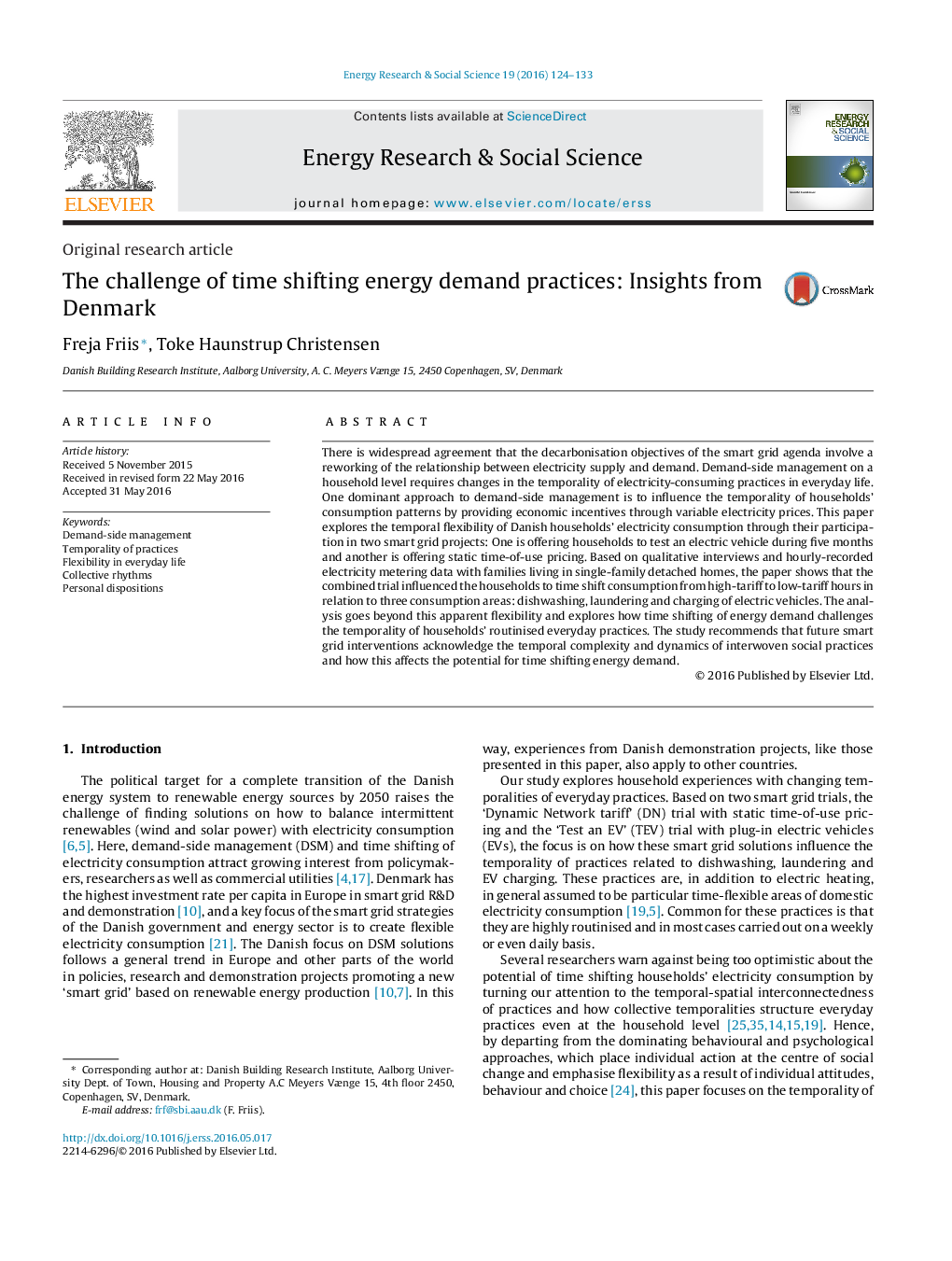| Article ID | Journal | Published Year | Pages | File Type |
|---|---|---|---|---|
| 6557921 | Energy Research & Social Science | 2016 | 10 Pages |
Abstract
There is widespread agreement that the decarbonisation objectives of the smart grid agenda involve a reworking of the relationship between electricity supply and demand. Demand-side management on a household level requires changes in the temporality of electricity-consuming practices in everyday life. One dominant approach to demand-side management is to influence the temporality of households' consumption patterns by providing economic incentives through variable electricity prices. This paper explores the temporal flexibility of Danish households' electricity consumption through their participation in two smart grid projects: One is offering households to test an electric vehicle during five months and another is offering static time-of-use pricing. Based on qualitative interviews and hourly-recorded electricity metering data with families living in single-family detached homes, the paper shows that the combined trial influenced the households to time shift consumption from high-tariff to low-tariff hours in relation to three consumption areas: dishwashing, laundering and charging of electric vehicles. The analysis goes beyond this apparent flexibility and explores how time shifting of energy demand challenges the temporality of households' routinised everyday practices. The study recommends that future smart grid interventions acknowledge the temporal complexity and dynamics of interwoven social practices and how this affects the potential for time shifting energy demand.
Keywords
Related Topics
Physical Sciences and Engineering
Energy
Energy (General)
Authors
Freja Friis, Toke Haunstrup Christensen,
